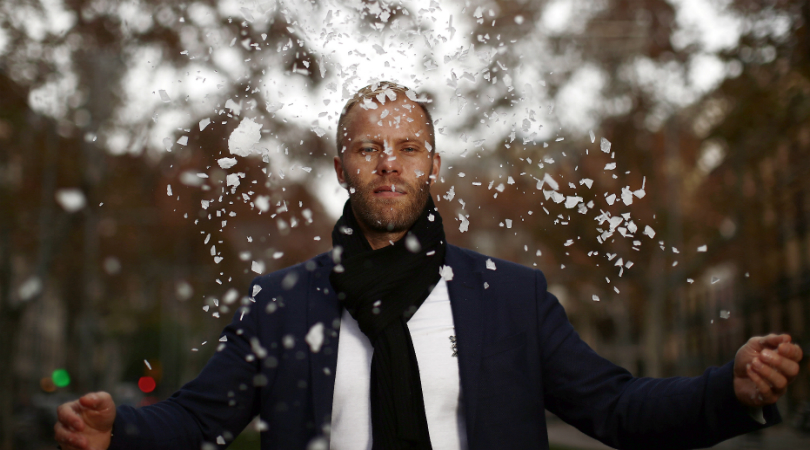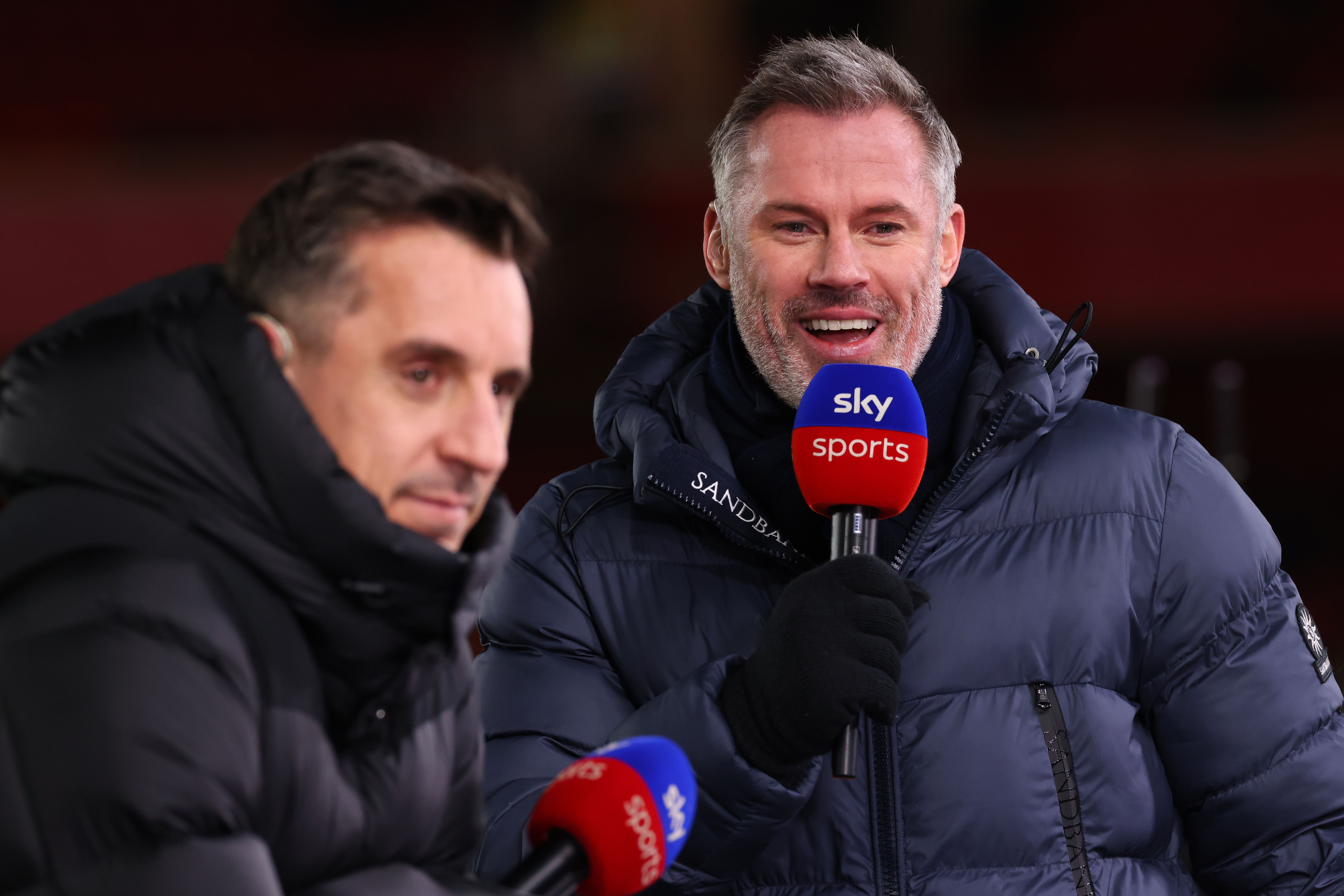The big interview – Hernan Crespo: "I had fun with Chelsea – I'd run all the way if I had chance to go back"
How did he cope with the pressure of a record price tag? Did AC Milan really celebrate at half time of the 2005 Champions League final? What's Zlatan like? Your questions answered in January 2016...
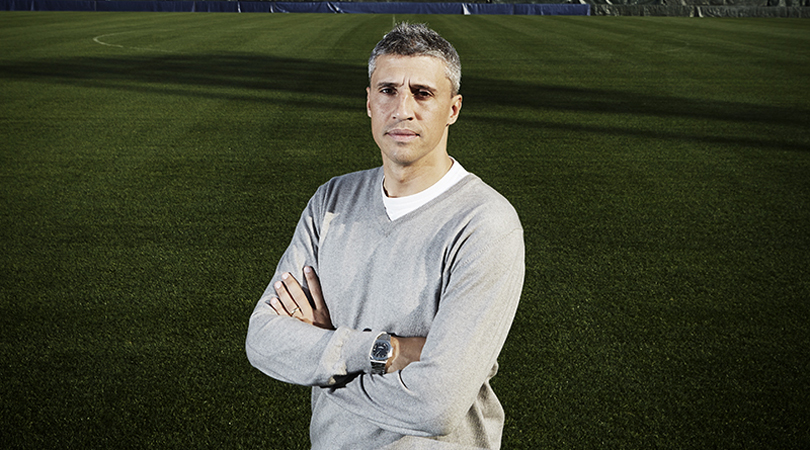
It’s a beautiful November morning in Modena, the northern Italian city of 180,000 people where Luciano Pavarotti was born, lived and died, and where high-end sports cars are made, from Lamborghinis to Maseratis. However, the noise outside the impressive 21,000-capacity Stadio Alberto Braglia on this sunny day is not the roar of an expensive car or a tenor’s voice, but 1,000 teenagers coming from the adjacent school.
Sanctuary can be found in the bar opposite the stadium, where memorabilia in the blue and yellow of Modena FC – whose most notable trophies came from beating Poole Town and Sutton United in the finals of the 1981 and ’82 Anglo-Italian Cup – adorn the ceiling. We’re assured that Modena legends are taking their coffee right now, while Massimo Taibi, briefly Manchester United’s goalkeeper, stops to say hello.
However, we’ve come to see the Canaries’ first-team coach, who was once the most expensive player in the world. We’re here for Hernan Crespo.
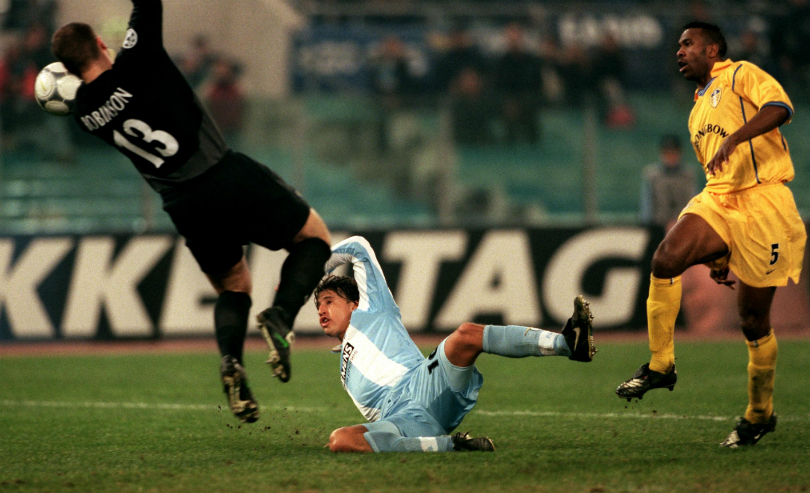
The well-educated Porteno (resident of Buenos Aires) scored more than 300 times in a professional career spanning two decades at the highest level. Only Gabriel Batistuta and Lionel Messi have bagged more international goals for Argentina than Crespo, who played in three World Cups, won three Serie A titles and picked up a Premier League crown under Jose Mourinho.
The former River Plate, Parma, Lazio, Inter, Chelsea, Milan and Genoa No.9 turned 40 in July, and is aiming for a coaching career as successful as his playing days.
As a native of the Buenos Aires suburb of Florida, have you ever been to the American state of the same name? Would you recommend your Florida as a holiday destination, too?
Adam Lewis, via Facebook
I’m from Buenos Aires and Florida is a good barrio – middle class, high middle class. I lived well. I went to a private school and grew up with no big problems, thanks to the economic conditions of my family. Buenos Aires is beautiful. Maybe it’s not like the Buenos Aires I left behind in 1996 – many things have changed with the economic crisis. But, well, it’s my city and Argentina is my country and I’m happy with that. Of course I’ve been to Florida in America. It’s completely different.
Get FourFourTwo Newsletter
The best features, fun and footballing quizzes, straight to your inbox every week.
Full name: Hernan Jorge Crespo
Date of birth: July 5, 1975
Place of birth: Florida, Argentina
Height: 6ft
Position: Striker
Argentina is famed for its love of No.10s, but you were a great No.9 – who were the strikers you looked up to as a youngster?
Julia, via email
I was born in 1975 so it was normal for a boy of my age to open his eyes and see the great Mario Kempes. By the time I was three years old, Argentina had become champions of the world on home soil. I have some faint memories of this, but what I really remember more is Italy in 1982, particularly Paolo Rossi. All of that generation were then eclipsed by Diego Maradona – he was at another level.
I couldn’t be Maradona. Instead I fell in love, football-wise, with Gary Lineker. He was the No.9 [although Lineker actually wore the No.10 shirt] and what a player! He loved the penalty area. I was desperate to meet him, because I admired him so much. I always remember Lineker scoring goals at the 1986 World Cup in Mexico and eventually winning the Golden Boot. Football has given me a lot, and it gave me the chance to meet Lineker.
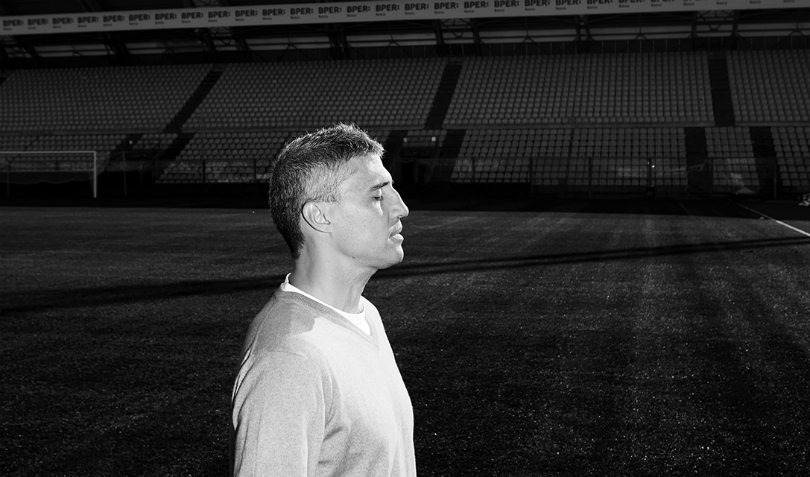
How does the Superclasico compare to the big rivalries in Europe? What is your favourite memory of those matches?
Gonzalo Ortiz, Santa Fe
Being a young player with River Plate, I always played against Boca. Everything grew from that: the rivalry was second nature because we played them all the time. My first Superclasico in the first team was in 1994 when I was 18, and we won 2-0. I was nervous before the game – I could feel my legs moving and couldn’t understand why. Then I realised it was the stadium that was moving with all the people bouncing above us!
I scored. So did [Ariel] Ortega. It had been nearly five years since River had beaten Boca, so it was incredible to go and win in La Bombonera. Our supporters were high in the stands, the top tier near the sky. It was the first time my father had been to La Bombonera. Imagine what it was like for him in those stands, and to see his son score for River against Boca in Boca’s own stadium!
Crespoooooooooooo at 00:57
Was scoring two goals to win River the Copa Libertadores in 1996 the high point in your career? How crazy was the after-party?
Martin Light, via Facebook
It was the realisation of a dream. River Plate had won their first Copa Libertadores in ’86. Back then, I was a young player at the club, watching the final from the terraces of the Estadio Monumental. After seeing this, I dreamed of winning the Copa Libertadores. Ten years later, we played the same opponents in the final, America de Cali. Yes, I scored twice, but I also scored 10 goals in the whole of the Libertadores that season. The win had a huge impact on my life. I was only 20, I’d been River all my life, I was a local boy and I won the biggest trophy. As for the party, look at the videos on YouTube. Crazy!
When you left River for Parma in ’96, did you have any idea you’d spend so much of your career in Italy? What was it about Serie A that you liked so much, and that suited you?
Riccardo Poggi, via Facebook
My love for Italy started when I was a kid, watching Italy in 1982 against Argentina and Brazil. When Argentina won the World Cup in ’86, the only game we drew was against Italy. In 1990, the World Cup was in Italy and Italy were in the semi-finals against Argentina. So Italy was always there in my formative years. Diego Maradona played in Italy, the best players of that age were in Italy – I watched only Italian football. I never saw the English league or the Spanish league. It wasn’t on television. Why did the style suit me? It’s hard to say. I was 21 years old when I arrived and I was comfortable straight away. Not everyone settles in a new league straight away, but I did.
Just how good was the Parma side you played in? There were so many great players – should you have won more?
Martin Girven, via Facebook
You have to understand the situation at that moment. Parma had a great team, but look at the rest: Juventus were the best in the world, Milan were very strong, Inter had Ronaldo. It wasn’t easy. We didn’t have the chance to play for three or four years together and grow as a team; there were a lot of changes. But we did manage to win three trophies in 100 days: the Supercoppa, Coppa Italia and UEFA Cup. We also qualified for the Champions League for the first time in the club’s history. But we were still Parma, a small team from a small city.
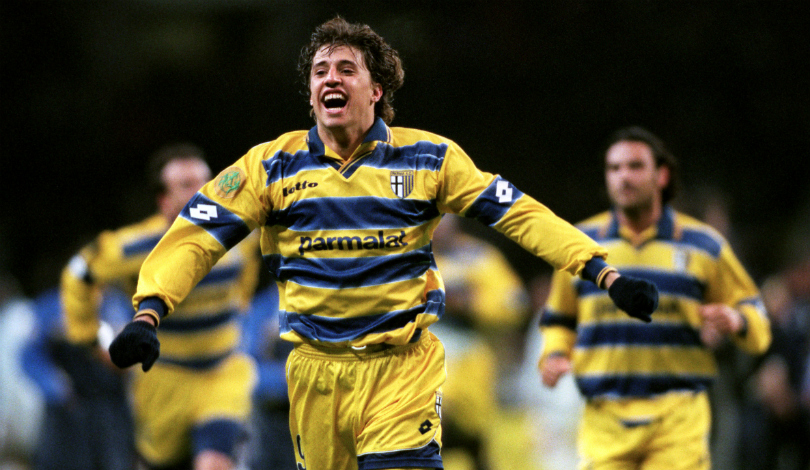
What went wrong towards the end of the 1998/99 season with Parma? You were in the title race in late February, then lost six of your last 11 matches and finished fourth…
Lucio, via Twitter
We were a small group, which meant we all played in pretty much all the matches. We lost a vital game against Milan at the San Siro. Abel Balbo had given us the lead, but in the second half we conceded twice. Our dream of winning the title was over.
A few days earlier, most of the same 14 players had played in the UEFA Cup in Madrid against Atletico. We had won that first leg 3-1, so from then we focused our attention on the UEFA Cup. We also had the semi-finals of the Italian Cup against Inter, home and away, then the final over two legs against Fiorentina. We were getting tired – it was too many big matches for so few players. We couldn’t win everything, so after that Milan game we decided to focus on the two cups – and we won them both.
When you left Parma for Lazio for what was briefly a world-record transfer fee, did the price tag affect you? Were you secretly relieved Luis Figo moved to Real Madrid two weeks later and took the record away?
Nick Kay, via email
Pressure? No. Zero. I knew it was the record, and even now it’s the record between two Italian teams [£35 million], but I never paid attention to the price
Pressure? No. Zero. I knew it was the record, and even now it’s the record between two Italian teams [£35 million] (This was later broken by Gonzalo Higuain's £76m move to Juventus in summer 2016 – Ed), but I never paid attention to the price – I just paid attention to my football. To learn how to handle the pressure, you have to watch the past.
Let me give you an example. I was 20 when River played at America de Cali in that Copa Libertadores final. It was two years after the death of Pablo Escobar. Going to Colombia was difficult. There were security problems and we never knew what was going to happen. The media spoke about the drug cartels; about Medellin and Cali. That felt like pressure: it was [a state of] fear for weeks before the game. And yet, the reality was they treated me very well. So the transfer fee was no problem. I was proud that I was worth it. It was a positive.
Zlatan Ibrahimovic has become one of the most iconic players in the game. What was he like when you played with him at Inter?
Giancarlo Genovesi, via Facebook
He has matured a lot. He is a very strong character, yet fragile at the same time. I have very happy memories of him. For me, he has been unlucky to play at the same time as Cristiano Ronaldo and Lionel Messi. Even though there’s a lot of respect for him as a player, he’s not at the same level as Messi and Ronaldo. It’s almost unfair to be fighting against two extraterrestrials. He’d have won many Ballons d’Or without them around.
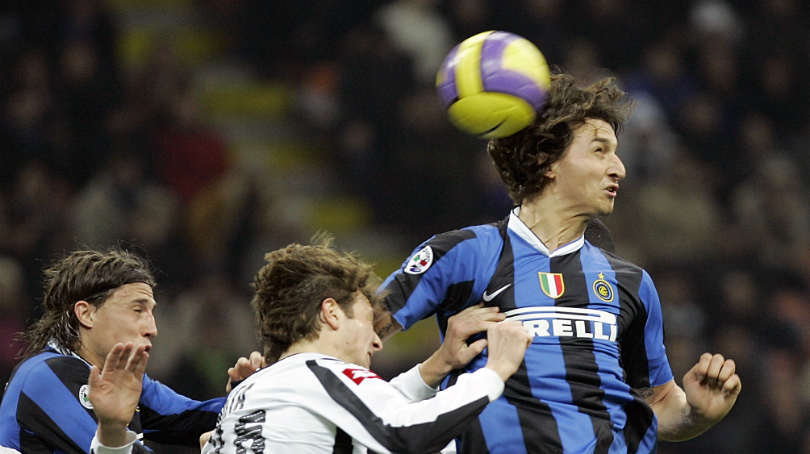
How often do you think about how close you came to an unbeaten season with Inter in 2006/07? Only losing the one game, to Roma with two late goals, must be annoying!
Michael Bird, via email
Not a lot. It was fantastic for me to come back to Serie A after being a winner at Chelsea. I could leave the UK happy – we’d won the Premier League title. But now I wanted to win the Scudetto. I needed it. I scored 20 goals that season. It would have been better to finish off unbeaten, but come on – we won the league.
Clubs: 1993-96 River Plate 84 games (36 goals); 1996-00 Parma 151 (80); 2000-02 Lazio 73 (48); 2002-03 Inter 30 (16); 2003-04 Chelsea 31 (12); 2004-05 Milan (loan) 40 (18); 2005-06 Chelsea 42 (13); 2006-09 Inter 86 (29); 2009-10 Genoa 21 (7); 2010-12 Parma 50 (14)
International: 1995-07 - Argentina 64 (35)
Who would win in a match between the Parma team of 1998/99 and the Inter team of 2006/07?
Rob Needham, via Twitter
Oof, that’s difficult to answer. There were very good players in each side. And if I had to add the Chelsea team of 2005/06, it would make it more difficult. I had the luck and the capability to belong to these teams. I enjoyed those experiences very much.
How was your relationship with Jose Mourinho, given you went on loan to Milan when he arrived at Chelsea but then he brought you back for his second season?
Dave D, via email
Spectacular. When he arrived at Chelsea, he wanted me to stay. I said I’d stay, but I also said: “But Jose, Milan called me.” I had a chance to go to Milan, a team I had grown up watching, Marco van Basten in particular. So I said: “Look, Jose, this is very difficult, but if I have to choose between Chelsea and Milan then I’m going to choose Milan.” Jose replied: “OK, I’ll wait for you for one week. If in one week the Milan deal is not done, then you’ll stay at Chelsea. Because if you don’t stay then we have to go to the market to buy a replacement.” I went back to Italy. My choices were based on my passions and dreams. Chelsea then bought Mateja Kezman and Arjen Robben.
Why didn’t it work out at Chelsea?
David Fisher, via Facebook
I had some very difficult personal problems during my time at Chelsea. My family lost two children. Emotionally, it was very, very hard to go through all of that on a personal level. Professionally, it was great. The fans were unbelievable. They sang [he breaks into song] “Hello, hello! Hernan Crespo, Hernan Crespo!” I wanted to give something back as I felt I had their respect. I had fun with Chelsea. The English have great respect for footballers. I loved London. I would run all the way there if I had the chance to go back.
What was it like being in the Milan dressing room at half-time of the 2005 Champions League Final against Liverpool? Were you really all celebrating at half-time?
Michael Gale, via Twitter
Even today I can’t believe it. After the game it was like a funeral. Nobody spoke – not in the dressing room, not on the team bus, not even in the hotel
[In English] Can I say bullsh*t? Yes? Bullsh*t! When you’re young, you’re taught that the game lasts 90 minutes. We all knew that. We were all experienced players, including Clarence Seedorf, Paolo Maldini, Alessandro Costacurta, Alessandro Nesta, Andrea Pirlo, Gennaro Gattuso, Andriy Shevchenko – do you think these guys would celebrate? Sadly, there were journalists who made up this story to justify what happened to us. They said that we celebrated, when actually, despite leading 3-0, we had sat and discussed what we could do better.
What happened in Istanbul was destiny. It’s football. And that’s the sadness and beauty of our game. But that night, firstly it was a dream to be playing in a Champions League final with Milan. The first half was great. We played very well, and everything happened as we wanted it to. I felt in form and scored two goals, but ended up on the losing team. Even today I can’t believe it. After the game it was like a funeral. Nobody spoke – not in the dressing room, not on the team bus, not even in the hotel. It was very difficult. Some players were crying. Others embraced their wives and children.
Hi, Hernan. Inter or Milan?
‘Nixonbelgrade’, via Twitter
I love Italy in general. I respect both clubs, and I respect the supporters of both clubs. It is possible to do that
People always ask me if I’m a fan of Inter or Milan. I love Italy in general. I respect both clubs, and I respect the supporters of both clubs. It is possible to do that. I was in London one day and took a cab to Stamford Bridge. The driver said: “Grande! Crespo. You hear we love you very much?” So I answered, “Listen to me: why do you love me? Why do you sing my name?” The driver said: “We know you wanted to go back to Italy, that your heart is in Italy, but you gave it your all when you played for Chelsea and you always respected the fans, even when we knew your heart was in Italy. That’s why.” So my love is for Italy; for the people and the great football clubs of Italy.
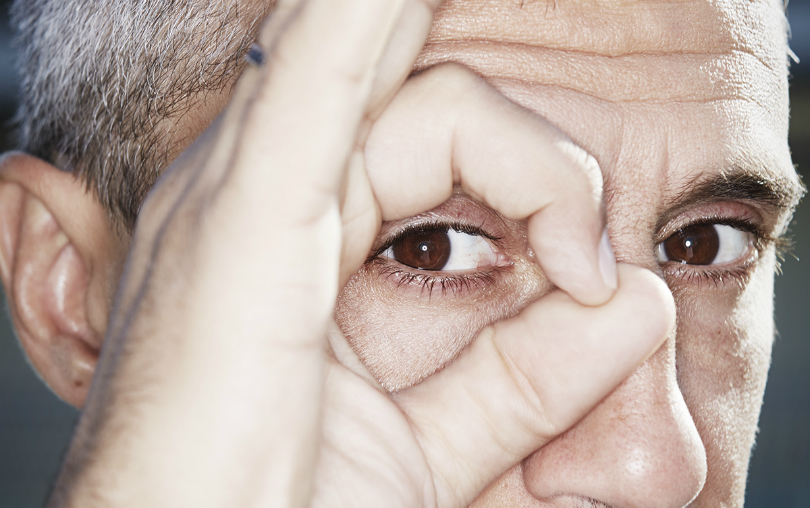
Having played in the final of both the Copa Libertadores and the Champions League, which competition would you say is bigger?
Jonathan Wyatt, Shrewsbury
Good question! I don’t know what’s bigger, but I come from South America so I have a bigger feeling for the Copa Libertadores. I’ve learned as an adult to love the Champions League, but as a kid I didn’t dream of winning it because we didn’t see it in Argentina. So my dream was always to win the Copa Libertadores.
How relieved were you when Carlos Roa saved Paul Ince’s penalty just moments after David Seaman had saved yours in the shootout against England at France 98?
Neil Baker, Wimbledon
When Seaman stopped the ball I thought I was dying. But when Roa stopped the ball there was a big moment of happiness for the team
It was hard... and complicated. When Seaman stopped the ball I thought I was dying. But when Roa stopped the ball there was a big moment of happiness for the team. We went through, but personally I was frustrated because I realised that I had to work really hard not to make the same mistake again. I came close to leaving the World Cup because I missed that penalty. So I continued to work hard and I fortunately had the chance to play in more World Cups.
- RECOMMENDED Carlos Roa: What Happened Next?
How frustrating was it to not start a game at the 2002 World Cup? And what went wrong for Argentina at that tournament?
Ryan Davis, via Twitter
It was a footballing disgrace for us. We had a team that should have gone very far. We won the first game against Nigeria, but then we lost to England. Then, in the decisive game, we drew with Sweden. If we played that well against Sweden 10 times we would have beaten them nine times, but everything went against us. We hit the post and their goalkeeper [Magnus Hedman] saved everything. I came on for Batistuta and Sweden scored almost straight away through Anders Svensson. I did score in the 88th minute when Ortega had a penalty saved by Hedman. Even the penalty was saved! It wasn’t a good game for us, and we failed to qualify from a World Cup group for the first time since 1962. It was very frustrating.
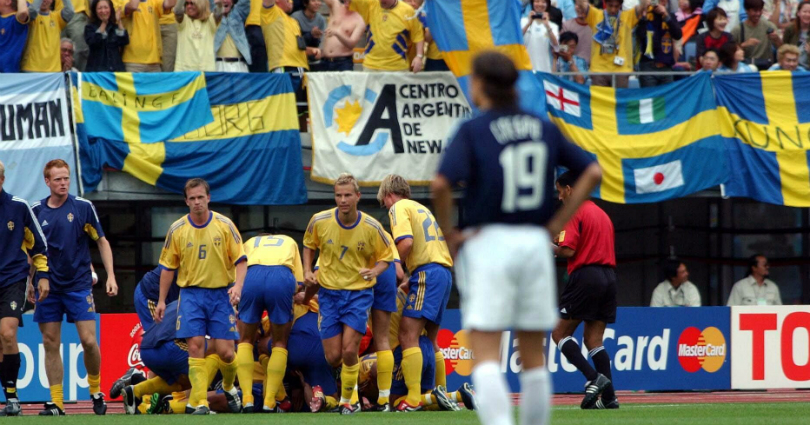
Were you surprised to be substituted against Germany in the World Cup quarter-finals in 2006? Do you think Jose Pekerman thought the match was won?
Amy, via Twitter
I don’t know what Pekerman was thinking, but I had to accept and respect his decision. I could agree or disagree, but it’s part of football.
Who was the best at assisting your goals?
Jamie Allen, via Twitter
Look at who I’ve played with: Christian Vieri, Andriy Shevchenko, Didier Drogba, Messi, Aguero, Tevez, Batistuta, Marcelo Salas, Abel Balbo, Claudio Caniggia – I played with all of the best! It’s impossible! You choose one!
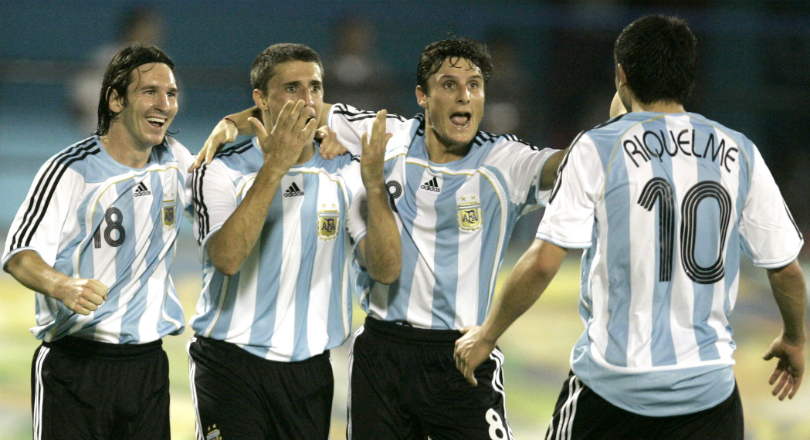
Who was the maddest player in the dressing room during your international career?
Steven John, via Facebook
In Argentina, the dressing room is always full of crazy characters – in a good way! – but the keeper German Burgos more than any other. He’s Diego Simeone’s assistant at Atletico now. Kily Gonzalez was another funny, crazy guy.
As a former No.9 for Argentina, who do you think is the best fit for that role today?
‘Silva John’, via Twitter
Let’s leave Messi to one side for a moment, because he’s incredible. Then you have Carlos Tevez, Sergio Aguero, Gonzalo Higuain... thank God Argentina have so many great forward options.
Honours: Argentine Primera 1993, 1994; Copa Libertadores 1996; Coppa Italia 1999; UEFA Cup 1999; Supercoppa Italiana 1999, 2000, 2004, 2006, 2008; Premier League 2006; Serie A 2007, 2008, 2009
You played in Serie A during a golden age for defenders, but who was the greatest?
Henry Wadsworth, via Twitter
It was an honour for me when Franco Baresi was asked to man-mark me [in Crespo’s first season in Italy]. I’d watched him on TV and he was great – one of the best ever. Then I found myself being marked by him at San Siro. I thought: ‘Wow, how did this happen?’
What do you make of the situation at Parma over the last couple of years? Do you think they’ll ever return to Serie A?
Tomas Piarais, via Facebook
It’s very sad and I hope they do. Parma have just started again in Serie D, but they’re doing well. The pain went through the people who were at the club for a long time. Many people lost their jobs. Football is second to this, when people are losing their livelihoods.
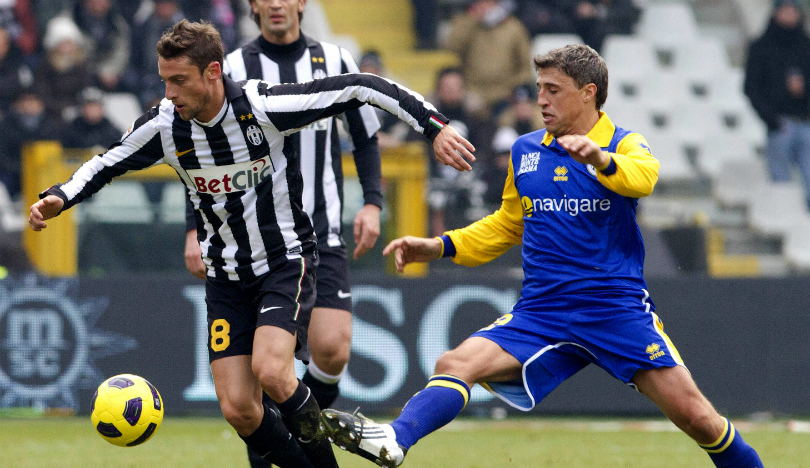
Which of your former managers do you base your own management style on? What are the aims for your coaching career?
Joshua King, via Twitter
I learned from the best, and my ambition is big. My ambition as a coach is to win the Champions League and then realise the dream I also had as a player. I’ve always dreamed big, ever since I was a kid, when I wanted to be Gary Lineker, or Marco van Basten, or Diego Maradona, or Paolo Rossi, or Mario Kempes.
I look to the great coaches, but I have to be myself. I look at Carlo Ancelotti, Jose Mourinho, Marcelo Bielsa... I take lessons from them, but I don’t want to be the same. I’m now at Modena in Serie B and I like coaching a lot. I hope it’s the start of a great journey, like the one I enjoyed as a player.
This feature originally appeared in the January 2016 issue of FourFourTwo. Subscribe!
More features every day on FourFourTwo.com • More Interviews
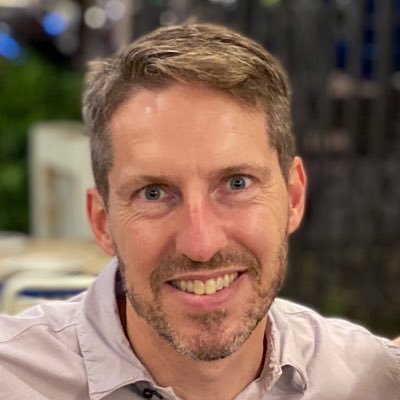
Andy Mitten is Editor at Large of FourFourTwo, interviewing the likes of Lionel Messi, Eric Cantona, Sir Alex Ferguson and Diego Maradona for the magazine. He also founded and is editor of United We Stand, the Manchester United fanzine, and contributes to a number of publications, including GQ, the BBC and The Athletic.
